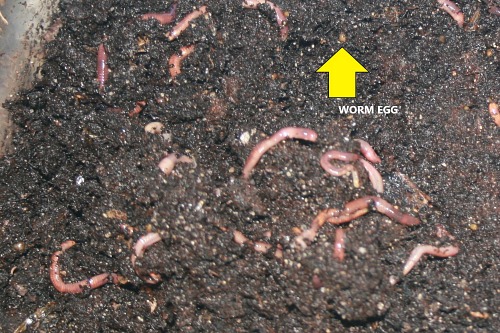Get Your Lawn in Top Shape with the Help of Lake Hickory Bait Yard Care Solutions
Get Your Lawn in Top Shape with the Help of Lake Hickory Bait Yard Care Solutions
Blog Article
Unlock the Secrets of Red Wigglers: Your Overview to Composting Success
The assimilation of red wigglers into composting techniques provides a substantial opportunity for improving soil health and wellness and advertising sustainability. Understanding their requirements and habits is vital for enhancing their capacity, from setting up an appropriate worm bin to feeding them the best materials.

What Are Red Wigglers?
(Lake Hickory Bait)Red wigglers, scientifically referred to as Eisenia fetida, are a varieties of earthworm mostly made use of in composting as a result of their exceptional capability to decompose raw material successfully. These worms are defined by their reddish-brown pigmentation and a fractional body, usually measuring in between 3 to 4 inches in size. Unlike various other earthworm varieties, red wigglers flourish in abundant, organic environments, making them excellent for vermicomposting systems.
Indigenous to North America, they are frequently found in rotting fallen leaves and compost heap, where they play a crucial function in nutrient recycling. Their adaptation to living in a damp, cardio setting enables them to eat large quantities of natural waste, simplifying right into nutrient-rich castings that enhance soil health.
Red wigglers duplicate rapidly, with a single worm efficient in creating numerous cocoons each week, each having numerous hatchlings. This fast recreation price adds to their efficiency in composting procedures. They choose temperatures between 60 ° F and 80 ° F, and their activity level enhances considerably within this variety, additional helping in the decomposition process. Recognizing the biology and behavior of red wigglers is important for maximizing their potential in composting applications.
Advantages of Using Red Wigglers
Using the power of red wigglers in composting offers numerous benefits that improve dirt health and wellness and promote lasting waste monitoring. These remarkable microorganisms efficiently damage down raw material, changing kitchen scraps and yard waste into nutrient-rich vermicompost. This completed item is incredibly useful for plant growth, as it boosts dirt structure, increases wetness retention, and boosts vitamins and mineral availability.

(Red Wiggler Express)Additionally, the visibility of red wigglers in your composting system can speed up the composting process, generating premium compost in a portion of the time contrasted to standard methods. The spreadings produced by these worms are additionally brimming with advantageous microbes that even more improve the soil ecosystem.
Establishing Up Your Worm Bin
Producing a reliable worm bin is a simple process that can considerably boost your composting initiatives. Worm bins can be made from plastic storage containers, wood boxes, or readily available worm bins.
Following, prepare the bed linens product, which offers as the worms' habitat. A mix of shredded newspaper, cardboard, and coconut coir works well, offering a comfortable environment for the worms.

Feeding Your Red Wigglers
To ensure the health and efficiency of your red wigglers, it is important to offer them with a balanced diet regimen that fulfills their nutritional needs. Red wigglers thrive on a varied array of organic materials, which not only supply required nutrients however also advertise reliable composting.
Begin by incorporating cooking area scraps such as veggie peels, fruit cores, and coffee grounds. Stay clear of citrus fruits, onions, and garlic, as these can be harmful to worm health and wellness. Additionally, introduce shredded paper, cardboard, and completely dry leaves to create a well-aerated atmosphere.
Feeding regularity need to be monitored; generally, worms can eat half their body weight in food weekly. It is vital to avoid overfeeding, as excess food can cause unpleasant smells and attract insects. An excellent practice is to add food read the full info here in percentages, allowing worms to refine it prior to presenting extra.
Preserving wetness levels is additionally crucial; the bedding must be moist yet not soaked. Finally, make certain to routinely examine the temperature level and pH degrees of the container to ensure an ideal environment for your red wigglers, eventually improving their composting effectiveness.
Harvesting and Using Compost
A successful composting procedure with red wigglers culminates in the abundant, dark garden compost understood as vermicompost, which can dramatically improve soil health and plant growth. Harvesting this nutrient-dense material usually takes place every 3 to six months, depending on the dimension of your system and the quantity of raw material being refined.
To harvest, delicately separate the garden compost from the worms and any kind of undecomposed materials. One reliable method entails moving the contents of the bin away and adding fresh bed linens and food to the empty room, urging the worms to move. After a couple of days, the garden compost can be gathered from the opposite side.
It is crucial to use vermicompost correctly to optimize its advantages. By including vermicompost into your horticulture regimen, you not only recycle organic waste but likewise develop a successful environment that supports lasting horticulture methods.
Conclusion
In summary, red wigglers offer as outstanding allies in composting efforts, changing organic waste right into nutrient-rich vermicompost (Red Wiggler Express). Their special organic attributes and efficient waste handling capacities add considerably to sustainable gardening methods. By recognizing the optimum problems for their habitat, feeding requirements, and garden compost harvesting techniques, garden enthusiasts can improve dirt wellness and advertise plant vitality. Accepting vermicomposting not only minimizes garbage dump waste but likewise fosters an extra ecologically accountable strategy to horticulture and resource management.
Report this page